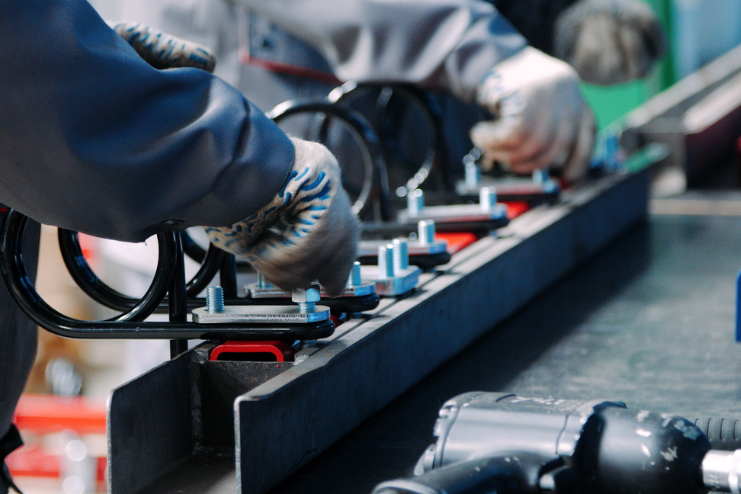As manufacturers worldwide continue to seek ways to streamline their day-to-day operations, AI has emerged as a game changer. From automating repetitive tasks to predicting machine failure, AI tools are leveraged to enhance efficiency and reduce operational costs; companies can now optimise their processes, improve productivity, and embrace sustainable practices. It’s important to highlight that AI is augmenting human abilities instead of replacing human workers, making work safer, more efficient, and ultimately more rewarding. In this exploration of AI’s impact on manufacturing, we’ll look at 15 statistics that shed light on the transformative power of artificial intelligence in the industry.
AI Statistics for Business
- On average, businesses adopting AI can expect a revenue increase of 6% to 10% (Statista).
- AI can increase labour productivity growth by 1.5 percentage points over the next decade (Statista).
- In October 2023, 55% of organisations were piloting or implementing generative AI solutions (Gartner).
- According to a Forbes Advisor survey, 64% of businesses expect AI to increase productivity, highlighting growing confidence in AI’s transformative potential (Forbes Advisor).
- 25% of companies are adopting AI to address labour shortages, as reported by IBM, showcasing AI’s role in optimising operations amidst workforce challenges (IBM).
AI Statistics for Manufacturing
- The global market size for AI in manufacturing was $5 billion in 2023 and is forecast to reach $68 billion by 2032 (Precedence Research).
- AI is projected to increase productivity by 40% or more in the manufacturing industry by 2035 (Accenture).
- AI-enabled predictive maintenance could reduce maintenance costs by up to 30% and unplanned downtime by 45%. (PwC)
- AI implementation in manufacturing processes can lead to cost reductions of up to 30% (World Economic Forum).
- AI technologies can automate tasks that absorb between 60% and 70% of workers’ time today (McKinsey, 2023).
AI adoption since the pandemic
- A survey by McKinsey & Company found that 63% of respondents in manufacturing said they had adopted AI in at least one business function in 2020, up from 51% in 2019 (McKinsey & Company).
- 55% of companies reported accelerating their AI strategy in 2020 due to Covid. (Harris Poll)
- In the wake of the crisis, close to three-quarters of business leaders (72%) feel positive about AI’s role in the future, according to a survey by The AI Journal. (The AI Journal)
- The manufacturing sector has high hopes for AI. According to Deloitte’s survey on AI adoption in manufacturing, 93% of companies believe AI will be a pivotal technology to drive growth and innovation in the sector. (Deloitte)
- Over the next two years, a growing number of AI technologies will be used in quality monitoring and defect management, bolstered by advances in computer vision technology. (Deloitte)
Adopting AI technologies allows manufacturers to thrive in an increasingly competitive market. From productivity enhancements to addressing labour shortages and quality control, AI is proving its worth across various facets of manufacturing operations. Manufacturers can minimise downtime, reduce defects, and improve their bottom line by leveraging AI-driven predictive maintenance solutions and quality control systems. As the manufacturing industry continues to evolve, embracing AI will be essential for staying ahead of the curve and unlocking new levels of efficiency and innovation.





